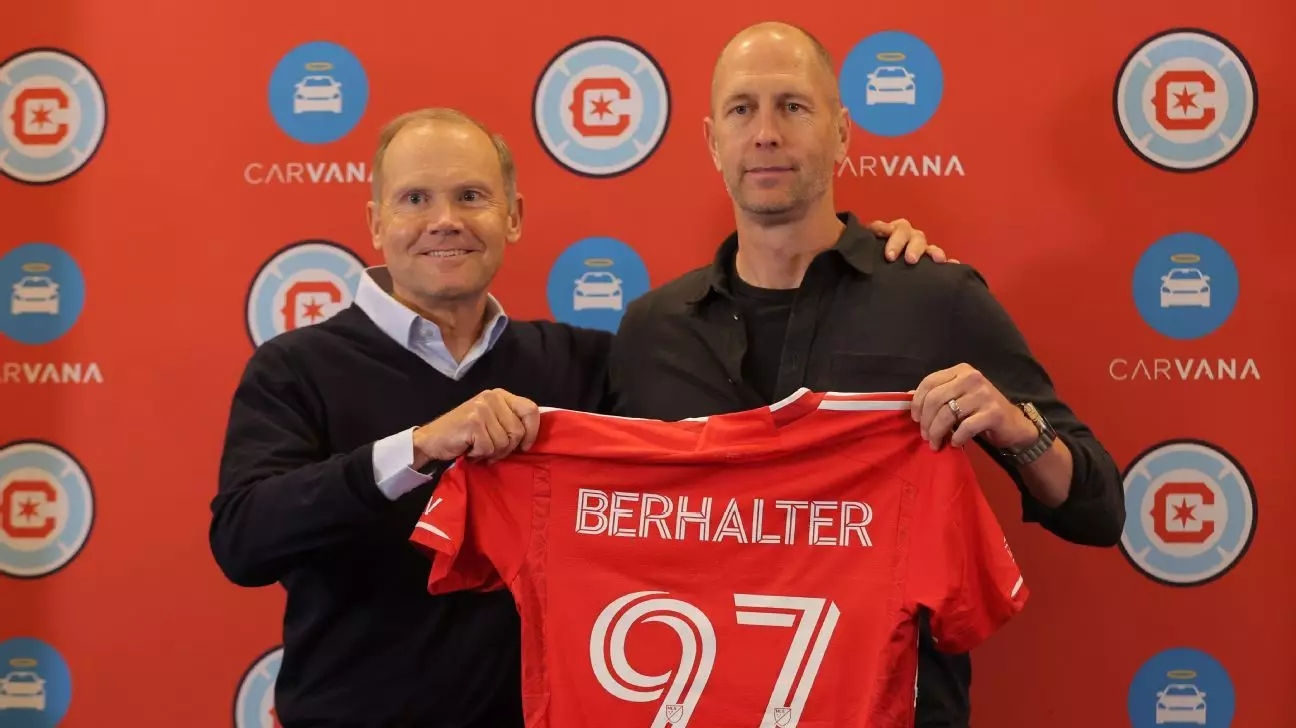Gregg Berhalter’s recent transition from the head coach of the U.S. men’s national soccer team (USMNT) to the dual roles of head coach and director of football for the Chicago Fire comes on the heels of a tumultuous and disappointing summer. His dismissal followed an early exit in the Copa América, a setback that he candidly described as a “really difficult moment.” Berhalter’s insights regarding the emotional toll of losing such a high-profile position reveal the inherent pressures involved in coaching at the elite level. He notes that while being fired is not a matter of life and death, the psychological impact can feel akin to mourning, as he had to navigate the challenges of loss and self-reflection.
Instead of retreating into despair, Berhalter chose to face these challenges head-on. He took time to connect with his family, reflecting on the factors that led to his coaching struggles. The acceptance of accountability is a significant aspect of personal and professional growth, and Berhalter’s approach exemplifies this. He actively sought feedback from players, using their perspectives as a foundation for his future endeavors. This introspective period, he claims, reignited his hunger for the game, indicating that coaching is not merely a profession for him but a fundamental aspect of his identity.
Upon his appointment, Berhalter expressed a clear vision for the Chicago Fire, presenting the club as a “sleeping giant” within Major League Soccer (MLS). He perceives the potential in Chicago as immense and is eager to harness that potential into a winning culture. Under the ownership of Joe Mansueto, Berhalter is set to reshape the team’s future with ambitious plans, including the development of a new training facility and aspirations to build a soccer-specific stadium. For Berhalter, the alignment between his vision and Mansueto’s goals is particularly significant.
Mansueto’s urgency to revamp the club stems from a history of underperformance; the Fire has failed to qualify for the playoffs in seven consecutive seasons. His decision to appoint Berhalter was driven by the need for swift action to ensure that the club can adopt a strategy that will attract talent and enhance performance before the commencement of the 2025 season. The strategy involves not only a fresh coaching perspective but also a comprehensive overhaul of the team’s structure and identity.
Mansueto acknowledged that bringing Berhalter in to fill dual roles was not the initial plan, but Berhalter’s extensive experience made it the most pragmatic choice. His past success in similar roles at Columbus Crew made Mansueto confident that this arrangement could promote seamless cooperation within the organization. This strategic decision indicates a forward-thinking approach to building the Chicago Fire’s identity and operational capacity.
The combination of head coach and director of football creates an environment conducive to nurturing talent and optimizing team performance. It allows for the implementation of a unified vision, both on and off the pitch. Berhalter himself emphasized the importance of establishing a top-performing club while capturing the potential that the Chicago market offers. The intersection of a passionate fan base, historic legacy, and substantial prospects for growth makes the challenge he faces all the more enticing.
In reflecting on his past and the road ahead, Berhalter builds a narrative of resilience and ambition. His comments on Mauricio Pochettino, the newly appointed head coach of USMNT, illustrate his capability to foster positive relationships within the soccer community. Berhalter recognizes the importance of collaboration and healthy competition, emphasizing that it is possible to respect his successor while focusing on his commitment to the Chicago Fire.
As Berhalter embarks on this new journey, he faces the imperative of delivering results while also implementing a long-term strategy for success. By creating systems to scout, develop, and retain talent, he can cultivate a culture that prioritizes both immediate wins and sustainable growth. His dual role places him at the helm of the team’s resurgence, and his vision will undoubtedly shape the legacy of the Chicago Fire in the years to come.
In a climate where the demands of soccer coaching resemble high-stakes warfare, Berhalter’s candid reflections on handling failure and rejuvenating ambition offer a profound commentary on leadership. The excitement surrounding his tenure is palpable, and the real test lies in his ability to translate his motivations into tangible success on the pitch, transforming the Chicago Fire from a slumbering entity into a fierce competitor in MLS.

